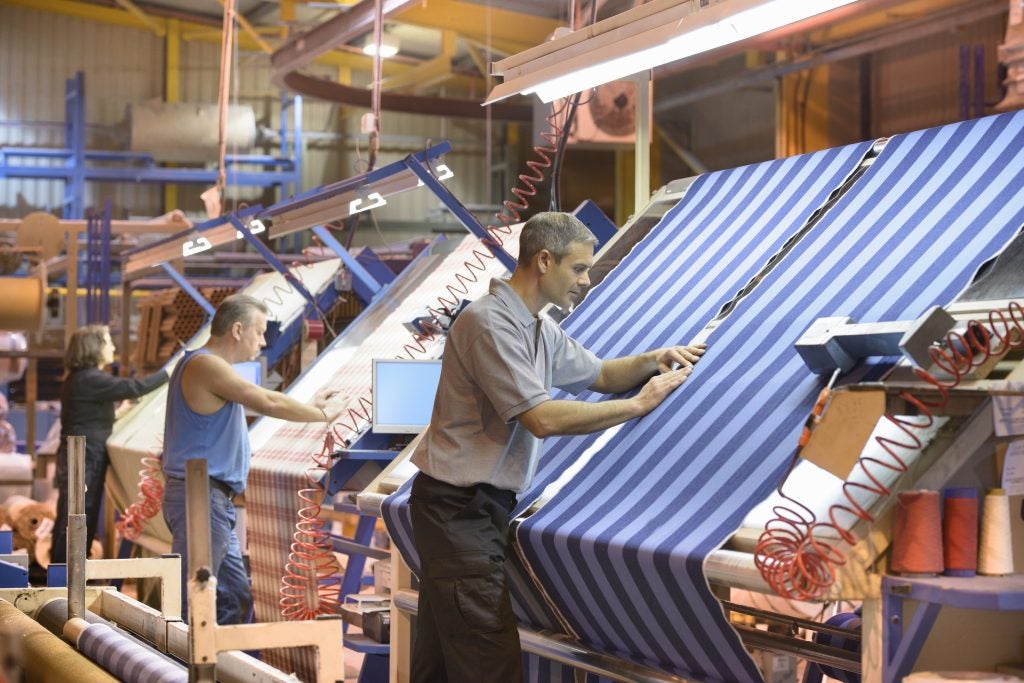The new report 'Bound by Bricks: An Opportunity to End Debt Bondage and Child Labour in Cambodia’s Brick Factories' is based on information documented by LICADHO from 21 brick factories across Kandal province and the capital Phnom Penh.
The Cambodian League for the Promotion and Defense of Human Rights (LICADHO) is renewing its call for: all actors to immediately free workers from bonded labour; enforce and strengthen child labour laws and; and international garment brands to stop their waste from being burnt in brick kilns, harming the health of workers and their children.
LICADHO claimed that it conducted in-depth interviews apart from having dozens of conversations with 10 workers who highlighted issues related to disposal of pre-consumer waste, debt bondage and low per-brick payments that have been driving children aged as young as nine years old to work in brick factories.
'Harmful use' of pre-consumer waste in brick factories
The new report details that LICADHO reportedly found pre-consumer garment waste at five operational and two permanently closed brick factories from April to September 2023.
It names fashion apparel brands like the Adidas; Reebok, which is owned by Authentic Brands Group; Under Armour, Lululemon, Gap Inc; Primark, Walmart and others.
LICADHO explained these factories in Phnom Penh and Kandal province burnt pre-consumer garment waste to fuel brick kilns.
The human rights organisation claimed it found waste marked with 19 international brands and has photographs as evidence.
LICADHO argued that burning garment waste exposes brick factory workers, their children and nearby communities to harmful emissions, which are associated with negative health and environmental impacts.
This is because brick factories often mix wood with waste from the garment industry – which includes fabric cutoffs, plastic, rubber and other materials – to reduce the cost of fuelling kilns, noted LICADHO.
Additionally, LICADHO claimed that debt-bonded workers interviewed by them who were exposed to smoke from burnt garment waste reported "respiratory problems, headaches and feelings of increased illness during pregnancy."
In fact, LICADHO allegedly said garment waste stored at one brick factory fuelled an uncontrolled fire, threatening workers’ safety.
Call to action
On 24 October, the human rights group said it wrote to brands or their parent companies to inform them of the findings; provide them with an opportunity to respond; and request that they end, prevent and remedy the harm caused by their waste.
However, as of 19 November, only six companies responded to LICADHO's request.
LICADHO said the Ministry of Environment is responsible for inspecting and monitoring the management of this hazardous waste, including urgently inspecting the disposal of hazardous waste that reportedly causes danger to human health or the environment.
The human rights organisation added that international apparel brands have largely failed to address the "harms" caused by the burning of pre-consumer garment waste in brick factories, despite prior public reporting on the issue and multiple brands being contacted about instances of their garment waste in brick kilns.
LICADHO remarked: "Many of the brands identified by LICADHO have public policies or commitments on climate change, human rights and waste management. Given the scope of branded waste that has been identified at brick factories, any garment brands sourcing from Cambodia are at risk of their products and waste harming debt-bonded workers, children and nearby communities who are forcibly exposed to pollution and potentially toxic smoke."
Furthering its efforts, LICADHO has advised international garment brands sourcing from Cambodia to conduct due diligence in accordance with the UN Guiding Principles on Business and Human Rights, OECD Guidelines for Multinational Enterprises on Responsible Business Conduct, and other mechanisms to assess, prevent, mitigate and remedy any risk that their products and waste cause actual or potential adverse human rights or environmental impacts.
It called for action by Cambodia’s Ministry of Environment to inspect all brick factories and enforce penalties for improper disposal of waste from the garment industry, in accordance with the 1999 Sub-Decree on Solid Waste Management and the 1996 Law on Environmental Protection and Natural Resource Management.
Brand responses
A spokesperson from adidas exclusively told Just Style that the brand regularly monitors its supply partners and has not seen any evidence of the suppliers deviating from its requirements.
The spokesperson continued: "We have strict environmental policies in place for our upstream supply chain, and in the case of Cambodia all waste materials, offcuts, etc., from our apparel suppliers must be disposed of, either to an approved waste-to-energy plant that is fully regulated, with air quality controls, etc., or to government-licensed recycling centers.
"We have therefore initiated an investigation to see if waste is being diverted from the authorised disposal routes to the brick kilns. If this is being done with the knowledge and involvement of our supplier partners, it would be in breach of our policies and lead to enforcement action."
A spokesperson for Primark told Just Style: "We condemn any harmful practices of garment waste disposal. We are currently working with our team on the ground to investigate the allegations raised in the report."
Reebok, Under Armour, lululemon, Gap, Old Navy, and Walmart did not respond to Just Style's request for a comment at the time of going to press.









